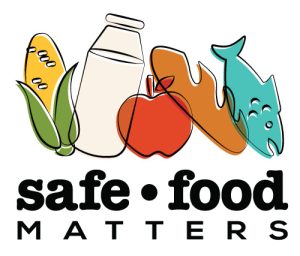Forest Spraying 1: Based on Faulty Approval
Pesticides are being sprayed on Canadian forests, killing the diversity of forest life. The resulting harms are plant and animal death, destruction of forest foods, and accelerating forest fires.
How is this allowed?
The approval for this use of pesticides comes from the agency responsible for “managing pests” – the Pest Management Regulatory Agency (PMRA) of Health Canada. The licenses to spray are then granted by the provinces.
PMRA says that unwanted trees and brush are “pests”. Pests are defined in the “Pest Control” law to include “a plant… that is injurious, noxious or troublesome”.
So trees are a troublesome pest? …Read More
A Message of Hope, Light and Love
At this time of reflection and resolution, we offer you a message of Hope, Light and Love. We believe this trinity is quite powerful.
Powerful in the spiritual sense, as in “Hope springs eternal” “Light vanquishes darkness” “… and the greatest of these is Love”.
Also powerful strategically, when viewed in a certain way. Here is our thinking:
Consider Hope as goal-setting. A hope for world peace implies a goal “for something” .
Consider Light as the plan or the truth. It sets out the path for how to best get to the goal.
Consider Love as the power that fuels …Read More
EU Renews Glyphosate – Kind of
The European Commission has officially renewed the registration of glyphosate at the European level. But it’s left much of the actual decision making to individual member states.
Desiccation is outlawed, and use within 60 days of harvest is not allowed on agricultural crops. (Safe Food Matters has been in court with Health Canada over this issue for years.)
Risks and assessments left to individual states include:
the coformulants (other ingredients) contained in GLY products
exposure of consumers from foods grown in fields where GLY was sprayed the year prior
protection of groundwater and surface water
risks to small animals
indirect effects on …Read More
Europe to Ban Pre-Harvest Glyphosate on Crops – so should Canada
On November 16, 2023 the European Commission announced it is set to renew glyphosate in Europe for another 10 years, but will ban desiccation – where spraying occurs to kill the crop for easier harvest. Spraying before harvest to kill weeds will also not be allowed for 60 days prior to harvest on farmed crops (1).
We Are Making A Difference on Pesticides
We are Safe Food Matters Inc., and we’re making a difference on pesticides. Our highlights from 2022 include: winning on glyphosate in Canada’s Federal Court of Appeal; obtaining Monsanto confidential test data on glyphosate MRLs; becoming a charity; and suing Health Canada for rejecting public participation in pesticide decision-making.
We hope you’ll consider making a charitable donation to us, because we ARE making a difference. You can donate here.
Federal Court of Appeal: Glyphosate
In February, 2022, we won our case on glyphosate in Canada’s Federal Court of Appeal. The Court ordered Health Canada’s PMRA to look at our objections to the 2017 …Read More
SAFE FOOD MATTERS SUES AGAIN ON GLYPHOSATE
November 2, 2022. Safe Food Matters Inc. has launched its second lawsuit against Health Canada over its 2017 re-registration of glyphosate. It claims Health Canada, through the Pest Management Regulatory Agency, acted unreasonably and unfairly when on September 29, 2022 it rejected the group’s objections for the second time.
Safe Food Matters initially sued PMRA in 2019, lost in federal court, then appealed. The appeal was successful and on February 2, 2022, the Federal Court of Appeal directed PMRA to reconsider the objections, and to follow the Guidance of the Court when doing so.
The Court issued the Guidance to avoid the …Read More
#GivingTuesday

We’re taking Health Canada to court over glyphosate.
We know there are many worthy causes out there, but this Giving Tuesday, please consider a donation to the Safe Food Matters legal fund.
Our Giving Tuesday profile:
https://givingtuesday.ca/
Our Go Fund Me page:
https://www.gofundme.com/
Thanks in advance for your support!



